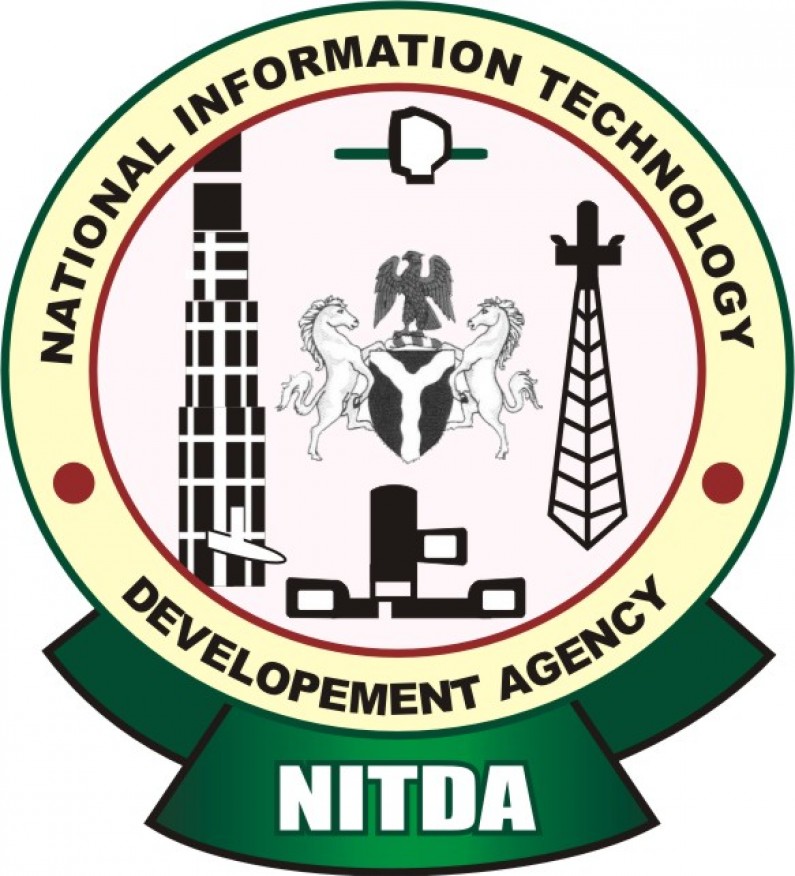E-Business
NITDA Reaffirms Commitment to Implementation of the Nigerian Content Development Program in ICT

In line with the mandate of the National Information Technology Development Agency (NITDA) to promote the development of IT in Nigeria and Executive Orders 003 and 005 of the Federal Government of Nigeria for the promotion of local content, NITDA is vigorously implementing and enforcing the Nigerian Content Development Plan in ICT as a sustainable framework for the strategic development of ICT in Nigeria.
It may be recalled that in December 2013, NITDA issued the Guidelines for Nigerian Content Development in ICT as a coherent framework for the development of ICT in Nigeria.
The Strategic implementation Plan for Nigerian Content Development established the Office for Nigerian Content Development in ICT (ONC) as Special Purpose Vehicle (SPV) to coordinate the implementation of the program and supervise compliance with the Guidelines.
Kasim Sodangi, National Coordinator, Office for Nigerian Content Development in ICT (ONC), National Information Technology Development Agency (NITDA) said the ONC has issued hundreds of notices and has intervened numerous times to ensure the Guidelines are enforced and that indigenously developed IT content is given priority in the procurements of MDAs.
The ONC under the supervision of NITDA has ensured that data hosted by MDAs outside Nigeria is repatriated to Nigerian Data Centres in line with the provisions of the Guidelines.
NITDA is also utilizing various instruments within its operations to ensure implementation of its Guidelines.
The Agency has forged functional partnerships with National Office for Technology Acquisition and Promotion (NOTAP), Bureau for Public Procurement (BPP), Corporate Affairs Commission (CAC), Computer Professional (Registration Council) of Nigeria (CPN) and other regulatory MDAs to ensure implementation of the local content policy of the Federal Government and its Guidelines on Nigerian Content.
The Agency has directed strict compliance with the Guidelines through the IT Project Clearance process. MDAs seeking to implement IT procurement projects are compelled to disclose project alignment with Government’s local content policy and comply with all extant regulations.
In March 2018, NITDA issued a framework for the registration of Indigenous IT Service Providers and Contractors in Nigeria.
The process is designed to ensure local companies with proven indigenous capability are given priority in executing IT procurement jobs in Nigeria.
NITDA therefore directs all indigenous IT service providers and contractors not yet registered with the Agency to immediately commence their registration process for verification and classification of capacity as IT Companies in Nigeria.
In implementing the 2018 budget, NITDA will advise MDAs to avoid implementing IT Procurements with companies not registered with NITDA, as they may not have the capacity or professionalism to deliver IT projects. This is to reduce the high incidence of failure and poor delivery of IT projects in Nigeria.
Currently, NITDA is in the process of amending the Guidelines for Nigerian Content Development in ICT.
Various stakeholders have made inputs for the amendment of the Guidelines. Inputs have been received from the Telecom Sector Industry Working Group at a session facilitated in partnership with the Nigerian Communications Commission (NCC). NITDA plans to issue the amended Guidelines before the end of third quarter of 2018 (Q3).
E-Business
Q1 2025 .ng Domain Name Statistics Reflect Nigeria’s Advancing Digital Landscape

The Nigeria Internet Registration Association (NiRA) presents its report on .ng domain name registration and renewal statistics for the first quarter of 2025, highlighting the continued expansion of Nigeria’s digital footprint. The data underscores a consistent and significant adoption of the nation’s Country Code Top-Level Domain (ccTLD), reinforcing its pivotal role in the burgeoning Nigerian digital economy.

During the period spanning January to March 2025, a total of 40,791 .ng domain names were recorded. This figure comprises 22,236 new registrations and 18,555 renewals, indicating a healthy balance between the acquisition of new digital identities and the sustained commitment of existing domain name holders to their online presence.
Analysis of the registration trends within the quarter reveals a notable upward trajectory, with a 13.92% increase in domain name registrations observed between February and March 2025.
This growth signifies an increasing recognition of the importance of a localized online identity by a diverse range of stakeholders, including individuals, startups, Small and Medium-sized Enterprises (SMEs), and larger organizations.
Notably, the .com.ng extension continues to be the dominant choice, accounting for over 60% of both new registrations and renewals. This reaffirms its status as the preferred domain name extension for Nigerian businesses seeking to establish a credible and locally relevant online brand presence while maintaining global accessibility. The sustained popularity of .com.ng underscores its perceived value among Nigerian entrepreneurs and enterprises seeking to secure their digital real estate.
This upward trajectory isn’t happening by chance. The Nigeria Internet Registration Association (NiRA) has remained intentional in its drive for digital inclusion and domain adoption. Through public education, training via the .ng Academy, outreach campaigns, and partnerships with stakeholders across the tech ecosystem, NiRA has consistently advocated for the importance of owning a local domain. The current standing of .ng as the second most registered ccTLD in Africa reflects the efficacy of these efforts.
Digital adoption in Nigeria is no longer just about being online—it’s about owning your digital identity. And with a .ng domain, Nigerians are better positioned to assert that identity, connect with local and international audiences, and gain better control over their digital footprints.
As we look toward the rest of 2025, the Q1 results serve as a strong signal: more people are embracing the digital future, and the .ng domain is increasingly becoming their first step.
E-Business
NIMC Launches NINAuth Digital Identity Verification App for Govt Services

National Identity Management Commission (NIMC) of Nigeria has launched a new digital identity verification tool called the NIN Authentication (NINAuth) application.

The initiative, which forms part of President Bola Tinubu’s Renewed Hope Agenda, aims to strengthen the country’s national digital identity management framework.
The launch builds upon Nigeria’s comprehensive unified digital identity system that has been transforming access to financial services and government programs.
The NINAuth application introduces several key features focused on data security and privacy.
The platform requires explicit user consent before sharing identity information for Know Your Customer (KYC) processes, giving individuals greater control over their personal data.
The system provides seamless access to various government services, including SIM card registration, immigration applications, passport processing, tax filings, and financial transactions.
The development follows significant investment in Nigeria’s digital identity infrastructure, including a $45.5 million support from the World Bank as part of the Digital Identification for Development (ID4D) project.
As the official service for integration with NIMC’s backend infrastructure, NINAuth enables secure verification processes across ministries, departments, and agencies (MDAs).
The application is available for download on both the Google Play Store and Apple iOS App Store for users of the National Identification Number (NIN).
The rollout represents a significant milestone in Nigeria’s ongoing efforts to digitize government services and strengthen identity verification processes.
“NINAuth is a cutting-edge suite of services including web, API, and mobile verification designed to enhance data security, protect privacy, and simplify access to government services,” said Dr. Kayode Adegoke, Head of Corporate Communications at NIMC.
“The platform introduces a robust layer of protection, empowering individuals with greater control over their personal information.”
The implementation supports the objectives of the recently established Nigeria Digital Identification for Development Project Ecosystem Steering Committee, which oversees the country’s digital identity initiatives.
President Bola Ahmed Tinubu has approved the launch of the NINAuth app and directed its use for verification and authentication across all MDAs.
The application provides a secure single sign-on solution for accessing government services and social protection programs while maintaining strict data privacy controls.
The centralized approach to digital identity management represents a significant step forward in Nigeria’s digital transformation journey and its commitment to modernizing government services.
E-Business
NCC to Checkmate $3Bn Digital Piracy Market

Nigerian Copyright Commission (NCC) has set in motion a machinery to checkmate the booming copyright piracy market in the country.

Copyright piracy is said to cost Nigeria an annual loss estimated at billions of naira.
Despite the absence of a coordinated or official statistics to gauge the quantum of loss, John Asein, director general, NCC, said as far back as 2019, Nigeria lost N918 trillion ($3 billion) annually to digital piracy.
The financial damages severely impact local businesses and innovation efforts.
The commission, in collaboration with the World Intellectual Property Organisation (WIPO), has started a project to develop strategies and tools to address the menace.
Speaking at a stakeholders’ meeting on the WIPO project to address online copyright piracy in Nigeria, Asein said digital technologies have unlocked tremendous opportunities for the creative and innovation sectors.
The NCC boss said technology also poses serious challenges, including online piracy, which he said is growing rapidly.
He said: “Pirate sites continue to emerge rapidly, with statistics indicating a 6.7 per cent increase in user visits. A significant percentage of these users are students aged between 18 and 24, with social media and messaging platforms becoming major gateways for accessing pirated content.”
He added: “No industry is immune. The most affected sectors include television (43.6 per cent), publishing (27.5 per cent), film (12.9 per cent), music (7.0 per cent), and software (6.2 per cent).
“Far beyond mere statistics, the victims are no longer only foreign right owners. Many Nigerians in these sectors have also been bruised and their creative enterprises ruined.”

 Broadcasting2 days ago
Broadcasting2 days ago5 Things You Absolutely Need to Know About BBNaija Season 10

 E-Financial2 days ago
E-Financial2 days agoW’Bank Says Cash Transfer Missed Millions of Needy Nigerians

 Telecom2 days ago
Telecom2 days agoNigerians May Pay More for Calls, Data as Senate Okays 5 Percent Excise Duty

 E-Business2 days ago
E-Business2 days agoNCC to Checkmate $3Bn Digital Piracy Market

 General News2 days ago
General News2 days agoEFCC Tells Nigerians to Shun Ponzi Schemes Like CBEX, Others

 E-Business2 days ago
E-Business2 days agoNIMC Launches NINAuth Digital Identity Verification App for Govt Services

 Telecom2 days ago
Telecom2 days agoMastercard Report Reveals Top Travel Trends Shaping Africa in 2025

 E-Financial2 days ago
E-Financial2 days agoCBN, NIBSS Unveil BVN Platform for Diaspora Nigerians


























